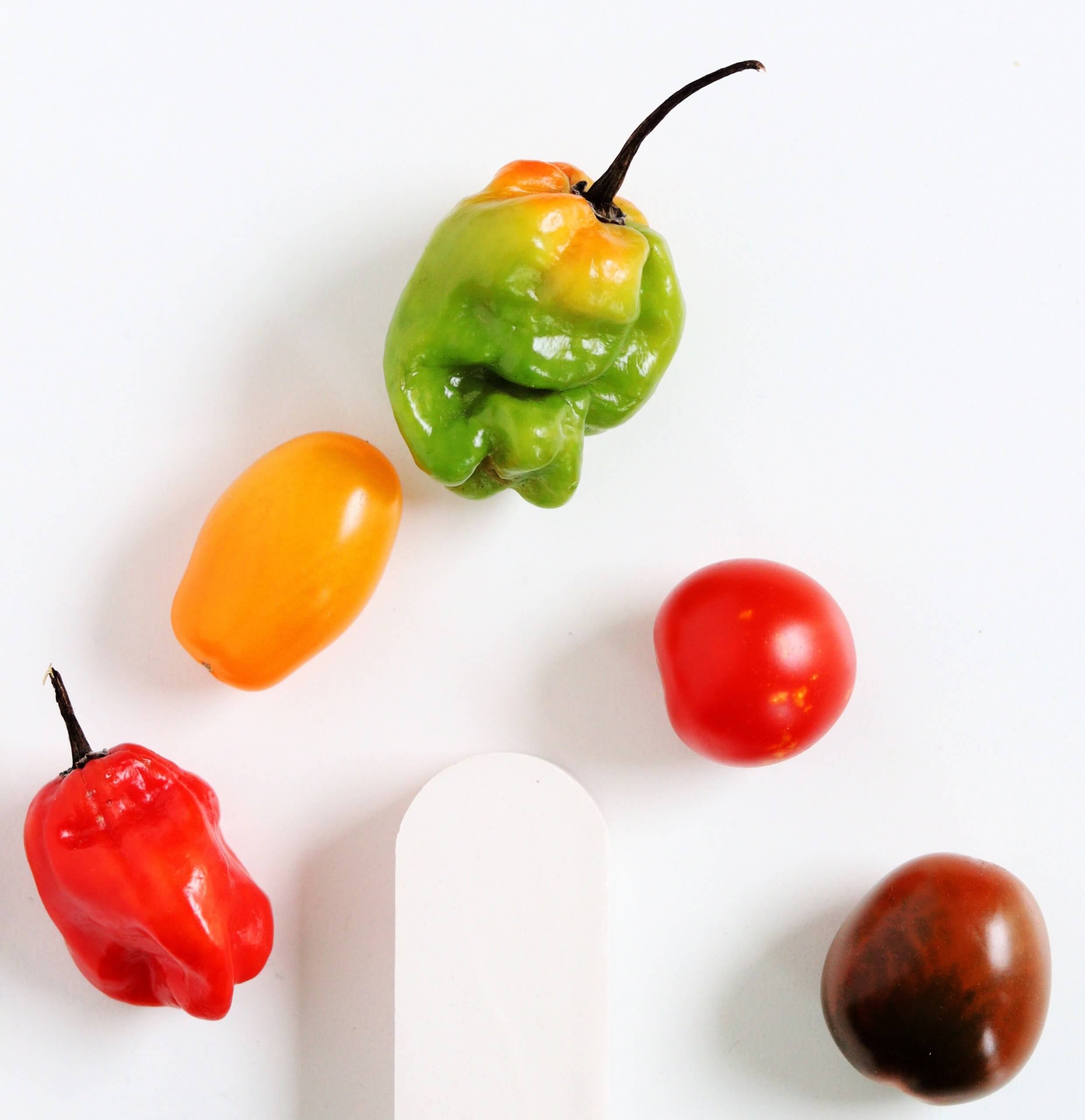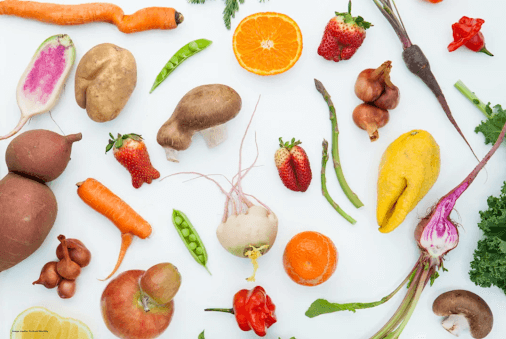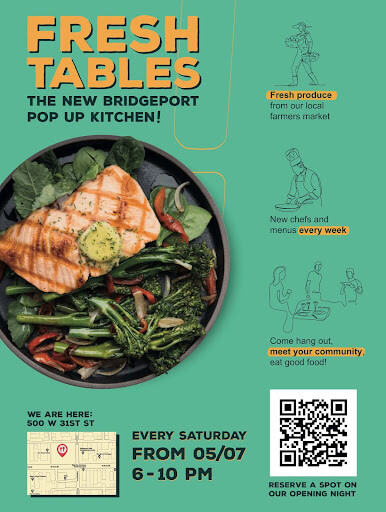Culinary Experiences That Limit Food Waste and Engage Communities
By Aabha A. Kale
December 9, 2022

In 2020, Feeding America reported that 40 percent of food in America is wasted annually. Around 30 percent of groceries in stores are thrown away. Increased supplies of fresh vegetables in stores coupled with faster consumption rates often push unused and excess food into the garbage. Food waste is a systems problem that can be addressed using design.
While more and more people are interested in living sustainably, understanding just what that means and actually adapting to this lifestyle is still a challenge.
Fresh Tables is food sustainability service platform founded by ID students Anahita Dasgupta (MDes 2023), Xincan Xu (MDes 2023), Kota Fujikawa (MDes 2022), and Brayan Pabón (MDes 2023). It works to create a change in the way we interact with our food systems. By utilizing unused groceries from local stores, the local chefs from the community create unique meals. Fresh Tables functions as an intermediary, allowing chefs to access excess raw food materials, as well as space, in order to create unique experiences and different cuisines. Through this collaborative local effort, Fresh Tables can create culinary experiences that result in reduced food waste.

Many grocery products, while completely viable, are discarded from stores due to their irregular shapes and sizes. Informing customers on the utility of such groceries items is difficult—many won’t buy misshapen produce, for example, because it looks different from the image of healthy vegetables they’re used to seeing. Partnering with local grocery stores, Fresh Tables collects these unsold and usable groceries and creates avenues for reusing them creatively. Fresh Tables is a way to create restaurant-level experiences with groceries that would otherwise go in the trash.
Fresh Table’s user surveys show that while most people visit a restaurant at least once a month, they would be interested in a non-fixed, changing menu. Furthermore, both consumers and chefs are interested in the service that Fresh Tables provides.

The service platform enables pop-up organizers to set up a Fresh Tables experience by connecting them to owners of unused spaces (such as empty lots and existing restaurant spaces) to reliably put together a pop-up restaurant experience that reduces food waste. While bringing in the raw materials, the service platform connects the organizer with local chefs to plan meals from the raw ingredients. The menu for the day can then be readily advertised using social media platforms like Instagram that entice potential patrons with food imagery. The effect is a gathering of people interested in a diverse culinary experience. Fresh Tables also shares the innovative recipes that the chefs create through their social media platforms. At pop-ups, patrons are encouraged to take leftovers home. Through user surveys, the Fresh Tables’ team found word of mouth, along with the help of online platforms such as Whatsapp and Yelp, was the most effective in creating engagement for the pop-ups.

After Fresh Tables’ first event featuring two local chefs, they advertised their service through the social platforms of one of the partnering restaurants, instantly garnering engagement.
Building on strengthening communities to help foster sustainable behavior and habit-building, Fresh Tables works with the local community to develop a culture around good food practices that will more effectively support changing individual behaviors regarding food education and food waste.
This project was developed in the Service Systems Workshop at ID, taught by Associate Professor of Practice Mark Jones. Students gain the knowledge and skills to assess service methods and identify the challenges to delivering a quality service experience, while applying tools and prototyping processes. Utilizing different methods of lectures, group discussions, and group critique, students are able to generate new service opportunity landscapes illustrated by high-level concepts.
As food systems and sustainability impact more of our daily lives, Fresh Tables has a real impact in reducing food waste, and in helping people incorporate sustainable habits into their lives.